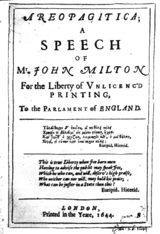
Freedom of speech
Overview
Freedom of speech is the freedom to speak freely without censorship
. The term freedom of expression is sometimes used synonymously, but includes any act of seeking, receiving and imparting information or ideas, regardless of the medium used. In practice, the right to freedom of speech is not absolute in any country and the right is commonly subject to limitations, such as on libel, slander, obscenity
, incitement
to commit a crime, etc.
The right to freedom of expression is recognized as a human right under Article 19 of the Universal Declaration of Human Rights
and recognized in international human rights law
in the International Covenant on Civil and Political Rights
(ICCPR).
Censorship
thumb|[[Book burning]] following the [[1973 Chilean coup d'état|1973 coup]] that installed the [[Military government of Chile |Pinochet regime]] in Chile...
. The term freedom of expression is sometimes used synonymously, but includes any act of seeking, receiving and imparting information or ideas, regardless of the medium used. In practice, the right to freedom of speech is not absolute in any country and the right is commonly subject to limitations, such as on libel, slander, obscenity
Obscenity
An obscenity is any statement or act which strongly offends the prevalent morality of the time, is a profanity, or is otherwise taboo, indecent, abhorrent, or disgusting, or is especially inauspicious...
, incitement
Incitement
In English criminal law, incitement was an anticipatory common law offence and was the act of persuading, encouraging, instigating, pressuring, or threatening so as to cause another to commit a crime....
to commit a crime, etc.
The right to freedom of expression is recognized as a human right under Article 19 of the Universal Declaration of Human Rights
Universal Declaration of Human Rights
The Universal Declaration of Human Rights is a declaration adopted by the United Nations General Assembly . The Declaration arose directly from the experience of the Second World War and represents the first global expression of rights to which all human beings are inherently entitled...
and recognized in international human rights law
International human rights law
International human rights law refers to the body of international law designed to promote and protect human rights at the international, regional and domestic levels...
in the International Covenant on Civil and Political Rights
International Covenant on Civil and Political Rights
The International Covenant on Civil and Political Rights is a multilateral treaty adopted by the United Nations General Assembly on December 16, 1966, and in force from March 23, 1976...
(ICCPR).
Unanswered Questions

